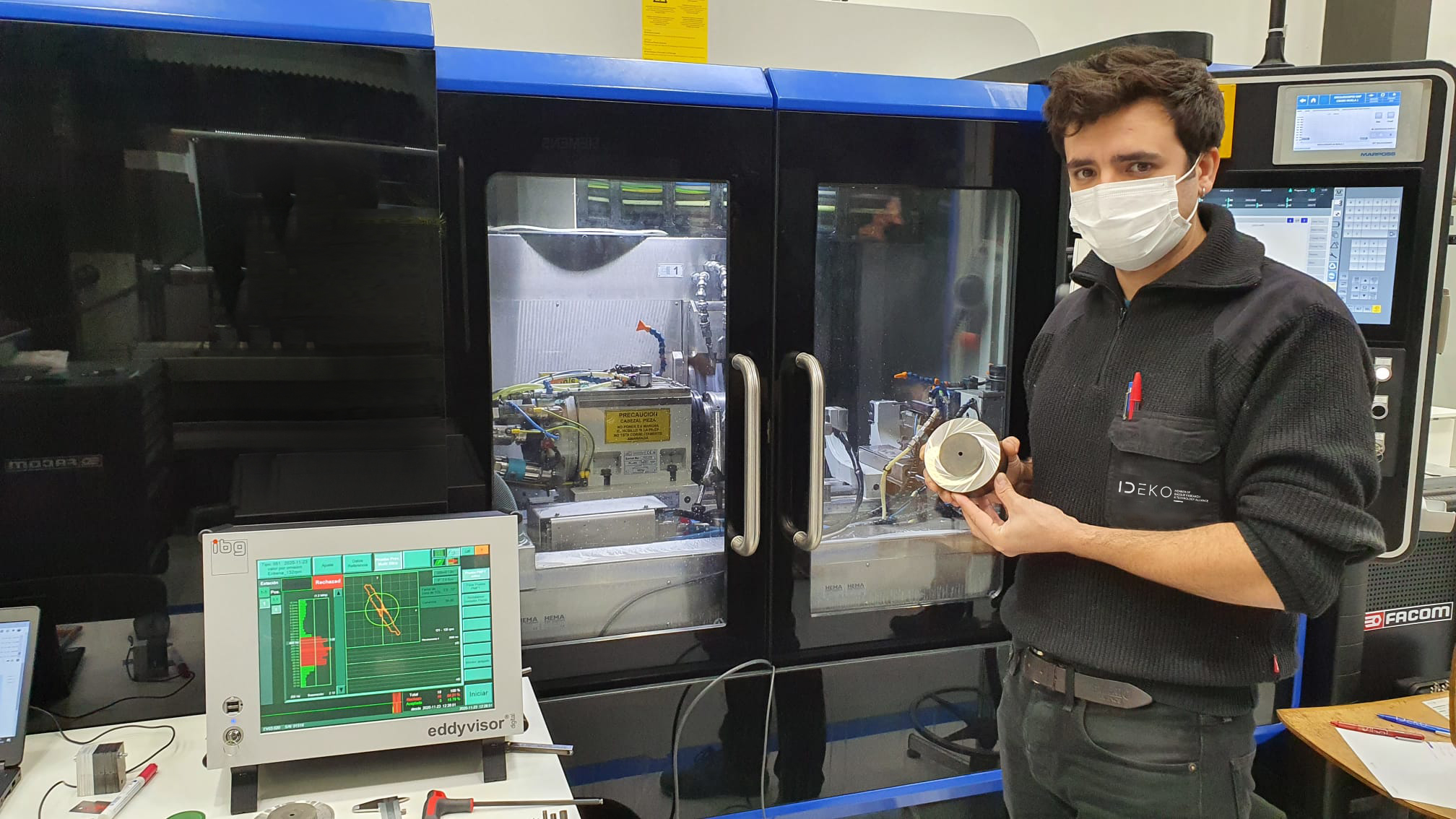Last news about IDEKO.

The researcher Lander Urgoiti has obtained Summa Cum Laude for his doctoral dissertation on face grinding, a workpiece finishing process for the aeronautical sector and the automotive industry.
The research centre IDEKO has strengthened the research team with the incorporation of a new PhD-holder on its staff. The researcher Lander Urgoiti, who works in the area of Manufacturing Processes of the entity, has recently obtained a Summa Cum Laude for reading his thesis, aimed at the study of face grinding.
At present, IDEKO employs a total of 35 doctors, who make up 32% of the staff, a significantly higher percentage than a decade ago (13%). Urgoiti's doctoral work constitutes a new milestone in the entity's vocation to commit to education to secure staff with a high scientific level.
Urgoiti presented his doctoral dissertation, called "Numerical and experimental analysis of thermal behaviour in face grinding processes", last October 22nd. The study was written under the direction of David Barrenetxea (IDEKO) and José Antonio Sánchez (University of the Basque Country).
Specifically, the research work deals with face grinding, an abrasion machining process particularly prone to thermal damage, which poses a challenge from a production point of view. Moreover, grinding is an operation that takes place at the end of the production process. This implies that the parts at this stage already practically have their final market value.
Because the requirements for geometric tolerances and surface finish are increasingly demanding, grinding processes are constantly undergoing research and development. This is an operation widely used in high-volume industries, such as the automotive industry, and in high value-added industries, such as aerospace. In both cases, a high level of theoretical and practical knowledge of the processes that are carried out on the parts is required. However, grinding is a poorly documented operation and knowledge about the process is still rather limited.
In his thesis, on a general scale Urgoiti studied the behaviour of this process using angular and straight wheels, as well as answering to specific questions and problems raised by the machine manufacturer Danobat.
First and foremost, the focus of the analysis of the two techniques lay on the study of the kinematics, as well as on the thermo-mechanical effects of each. For this purpose, kinematic models were developed based on local starting mechanisms, i.e. by analysing in detail what happens at each point in the contact area. In addition, thermal models were used, which made it possible to study the effect of the grinding conditions at each point in the area, as well as the effects on a more global level, such as that of cooling on the entire part or the possible effect of thermal feedback.
In order to validate the hypotheses raised by these models, face grinding tests were performed using both techniques in a wide range of conditions. Hence, it has been possible to establish the energy behaviour based on the aggressiveness, as well as the influence of conditions on the progressive wear of the grinding wheel. The influence of grinding parameters on thermal damage has also been studied by establishing a relationship between the burning limit temperature and the contact time for each of the techniques.
Thanks to the work of this dissertation, the importance of temperature measurement and control in the whole face grinding process has been confirmed and the development of a specific temperature meter, much more precise and allowing instantaneous measurement for the optimization of the face grinding process, has been proposed.